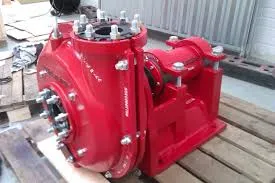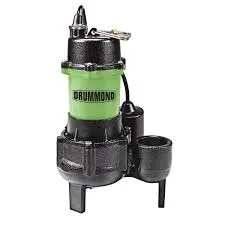TEL:
+86 13120555503
Marathi
- Afrikaans
- Albanian
- Amharic
- Arabic
- Armenian
- Azerbaijani
- Basque
- Belarusian
- Bengali
- Bosnian
- Bulgarian
- Catalan
- Cebuano
- Corsican
- Croatian
- Czech
- Danish
- Dutch
- English
- Esperanto
- Estonian
- Finnish
- French
- Frisian
- Galician
- Georgian
- German
- Greek
- Gujarati
- Haitian Creole
- hausa
- hawaiian
- Hebrew
- Hindi
- Miao
- Hungarian
- Icelandic
- igbo
- Indonesian
- irish
- Italian
- Japanese
- Javanese
- Kannada
- kazakh
- Khmer
- Rwandese
- Korean
- Kurdish
- Kyrgyz
- Lao
- Latin
- Latvian
- Lithuanian
- Luxembourgish
- Macedonian
- Malgashi
- Malay
- Malayalam
- Maltese
- Maori
- Marathi
- Mongolian
- Myanmar
- Nepali
- Norwegian
- Norwegian
- Occitan
- Pashto
- Persian
- Polish
- Portuguese
- Punjabi
- Romanian
- Russian
- Samoan
- Scottish Gaelic
- Serbian
- Sesotho
- Shona
- Sindhi
- Sinhala
- Slovak
- Slovenian
- Somali
- Spanish
- Sundanese
- Swahili
- Swedish
- Tagalog
- Tajik
- Tamil
- Tatar
- Telugu
- Thai
- Turkish
- Turkmen
- Ukrainian
- Urdu
- Uighur
- Uzbek
- Vietnamese
- Welsh
- Bantu
- Yiddish
- Yoruba
- Zulu
Telephone: +86 13120555503
Email: frank@cypump.com
फेब्रुवारी . 15, 2025 18:14 Back to list
Septic Tank Pumps
Septic sewage pumps are an essential component of modern wastewater management systems, particularly in areas where conventional gravity-based sewer systems are not feasible. These pumps are designed to move effluent from a septic tank to a secondary treatment system or a dispersal area. The selection of the right septic sewage pump is crucial to ensuring the effectiveness and longevity of your septic system, making it a critical topic in residential and commercial plumbing.
The ease of maintenance and potential availability of replacement parts are essential factors when considering a septic sewage pump. Choosing a model from a reputable manufacturer, renowned for their customer service and product support, can significantly impact the system's long-term reliability. Regular inspection and maintenance of the pump, at least annually, are recommended to preemptively address wear and avoid unscheduled breakdowns. Energy efficiency is another consideration that cannot be understated. Energy-efficient models reduce operating costs and offer an environmentally friendly option by utilizing less power. Advances in pump technology have led to the development of energy-saving features without compromising on performance, offering substantial long-term savings. Proper installation of a septic sewage pump is just as crucial as selecting the right model. Incorrect installation can result in frequent malfunctions and costly repairs. It is advisable to hire a certified professional for the installation process to ensure compliance with local regulations and manufacturer guidelines. Proper installation safeguards against issues such as air locks or improper wiring, which can impair pump functionality. Finally, understanding the importance of an alarm system integrated with the septic sewage pump cannot be overstated. Alarms that alert to high water levels in the septic tank can provide early warning signs of system failure, allowing prompt intervention. This feature is particularly vital in preventing costly damage to property and the environment. In conclusion, septic sewage pumps are an indispensable part of many wastewater management systems. Their proper selection, installation, and maintenance are paramount for efficient operation. Homeowners and industry professionals alike should consider factors such as pump type and capacity, construction materials, maintenance requirements, installation quality, and energy efficiency to ensure the longevity and effectiveness of their septic systems. Investing time and resources in these aspects not only enhances system reliability but also contributes to environmental protection and cost savings.


The ease of maintenance and potential availability of replacement parts are essential factors when considering a septic sewage pump. Choosing a model from a reputable manufacturer, renowned for their customer service and product support, can significantly impact the system's long-term reliability. Regular inspection and maintenance of the pump, at least annually, are recommended to preemptively address wear and avoid unscheduled breakdowns. Energy efficiency is another consideration that cannot be understated. Energy-efficient models reduce operating costs and offer an environmentally friendly option by utilizing less power. Advances in pump technology have led to the development of energy-saving features without compromising on performance, offering substantial long-term savings. Proper installation of a septic sewage pump is just as crucial as selecting the right model. Incorrect installation can result in frequent malfunctions and costly repairs. It is advisable to hire a certified professional for the installation process to ensure compliance with local regulations and manufacturer guidelines. Proper installation safeguards against issues such as air locks or improper wiring, which can impair pump functionality. Finally, understanding the importance of an alarm system integrated with the septic sewage pump cannot be overstated. Alarms that alert to high water levels in the septic tank can provide early warning signs of system failure, allowing prompt intervention. This feature is particularly vital in preventing costly damage to property and the environment. In conclusion, septic sewage pumps are an indispensable part of many wastewater management systems. Their proper selection, installation, and maintenance are paramount for efficient operation. Homeowners and industry professionals alike should consider factors such as pump type and capacity, construction materials, maintenance requirements, installation quality, and energy efficiency to ensure the longevity and effectiveness of their septic systems. Investing time and resources in these aspects not only enhances system reliability but also contributes to environmental protection and cost savings.
Share
Next:
Latest news
-
ISG Series Vertical Pipeline Pump - Chi Yuan Pumps Co., LTD.|High Efficiency&Low Noise
NewsAug.07,2025
-
ISG Series Pipeline Pump - Chi Yuan Pumps | High Efficiency, Reliable Performance
NewsAug.07,2025
-
ISG Series Vertical Pipeline Pump - Chi Yuan Pumps Co., LTD.
NewsAug.06,2025
-
ISG Series Vertical Pipeline Pump-Chi Yuan Pumps|Efficient, Durable, Low Noise
NewsAug.06,2025
-
Wear-Resistant Slurry Pump for Mining & Industrial Sludge
NewsAug.06,2025
-
ISG Series Vertical Pipeline Pump: Advanced Solutions for Industrial Fluid Handling|Chi Yuan Pumps Co., LTD
NewsAug.06,2025










